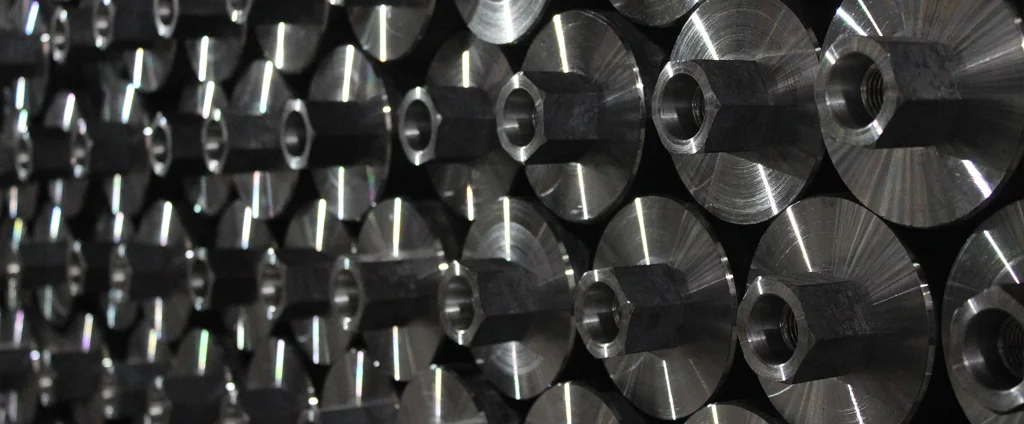SAE/AISI 1141 Carbon Steel (UNS G11410)

SAE/AISI 1141 carbon steel is a medium-carbon steel known for its excellent machinability, moderate strength, and good wear resistance. This makes it ideal for applications requiring components with these characteristics, such as gears, fasteners, and hydraulic parts.
| Chemical Composition | ||
|---|---|---|
| Element | Min | Max |
| Iron | 97.7% | 98.2% |
| Carbon | 0.37% | 0.45% |
| Manganese | 1.35% | 1.65% |
| Phosphorous | —— | 0.04% |
| Sulfur | 0.08% | 0.13% |
The following table provides a list of SAE/AISI 1141 properties in both SI and US customary/Imperial units.
Click on the button to switch between Metric and Imperial units.
| Physical Properties | Metric |
|---|---|
| Density | 7850 kg/m3 |
| Mechanical Properties | Metric |
| Tensile Strength (Ultimate) | 675 MPa |
| Tensile Strength (Yield) | 360 MPa |
| Young’s Modulus (E) | 190 - 210 GPa |
| Bulk Modulus (K) | 140 GPa |
| Shear Modulus (G) | 80 GPa |
| Elongation at Break | 22% |
| Reduction of Area | 38% |
| Poisson’s Ratio (ν) | 0.27 - 0.30 |
| Brinell Hardness | 192 |
| Thermal Properties | Metric |
| Thermal Conductivity | 50 W/m·K |
| Specific Heat Capacity (Cp) | 470 J/kg·K |
| Coefficient of Thermal Expansion (αL) | 1.2×10-5 1/°C |
| Electrical Properties | Metric |
| Electrical Conductivity | 5.8×106 S/m |
| Electrical Resistivity | 1.7×10-7 Ω·m |
The values in this table are approximate and can vary depending on various factors such as the specific manufacturing process and heat treatment applied to the alloy.
Advantages & Disadvantages of 1141 Carbon Steel
| Advantages | Disadvantages |
|---|---|
| Excellent machinability | Reduced toughness |
| Cost-effective | Limited hardenability |
| Good wear resistance | Lower corrosion resistance |
Applications of 1141 Carbon Steel
AISI 1141 carbon steel finds applications in various industries where a combination of strength, machinability, and cost-effectiveness is required. Key applications include:
- Machined Components: Due to its excellent machinability, 1141 carbon steel is widely used for manufacturing machined components.
- Fasteners: This steel is often utilized for the production of fasteners such as screws, nuts, and bolts.
- Couplings and Fittings: The good machinability and moderate strength make it suitable for manufacturing couplings, fittings, and connectors used in mechanical systems and pipelines.
- Hydraulic and Pneumatic Components: Components in hydraulic and pneumatic systems, such as fittings, connectors, and hydraulic cylinder parts, can be made from 1141 carbon steel due to its machinability and strength characteristics.
- Gears and Sprockets: Its wear resistance and moderate strength make it suitable for manufacturing gears, sprockets, and other power transmission components.
- Automotive Parts: Certain automotive components, including axles, crankshafts, and camshafts, can be made from this steel due to its machinability and sufficient strength for these applications.
- Tooling and Dies: 1141 carbon steel is also used in the production of tooling and dies for stamping, forging, or forming processes where wear resistance, machinability, and moderate strength are important factors.
